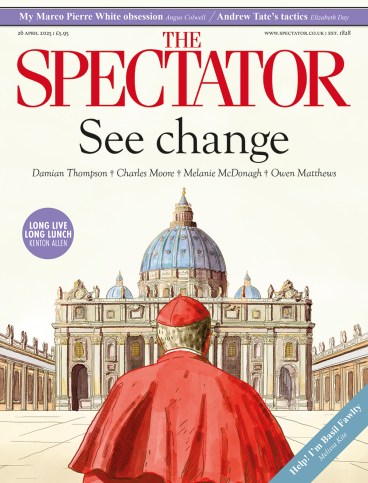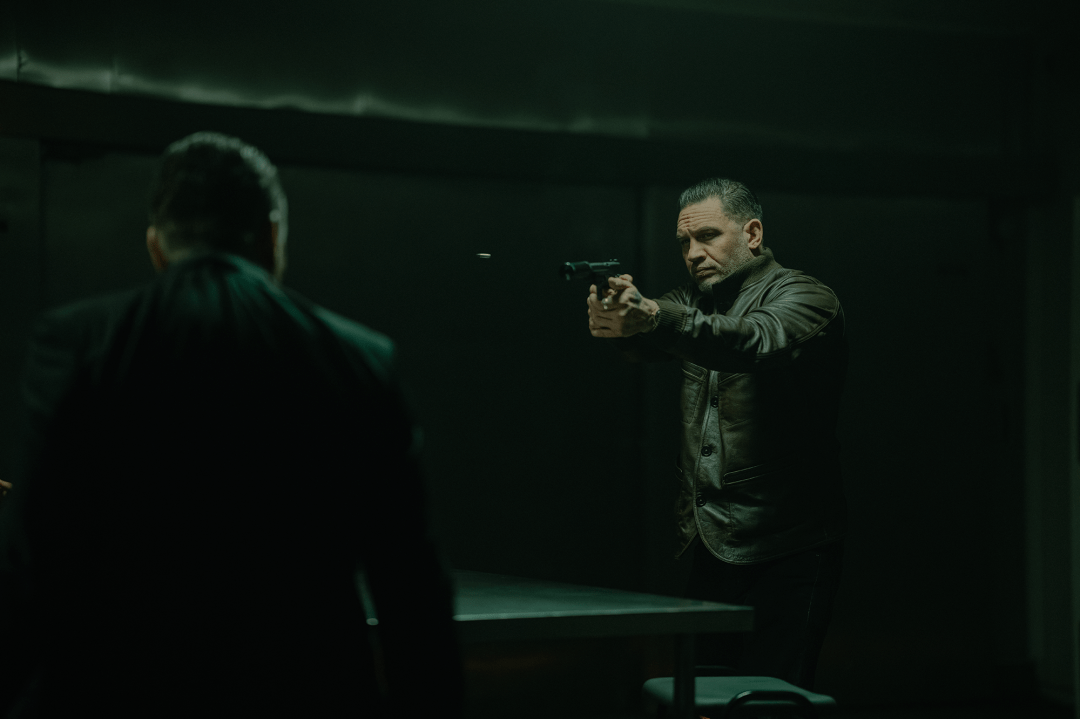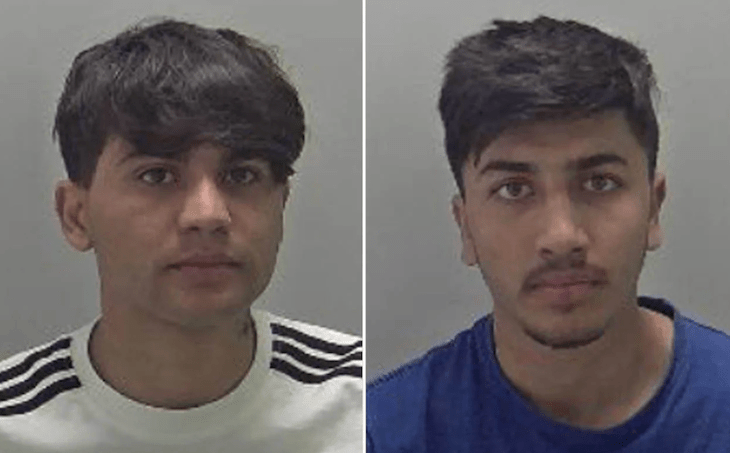
I’m about to give away the opening scene of the latest gangsters-are-cool drama MobLand. Don’t worry. It won’t spoil anything. By the end of this review you won’t want to watch even a moment of this dog’s breakfast of an atrocity of charmless, witless, misbegotten, amoral tripe anyway.
So we’re in a basement with Tom Hardy, playing his usual amiably ruthless hard-man character. This time he’s called Harry Da Souza and he’s the chief fixer for a London-based Irish crime family called the Harrigans. On this occasion, Da Souza is mediating between two lower-tier rival gangs, whom he has orders to make apologise to one another. After much tense negotiation, the gang leaders agree to shake hands but refuse to apologise. Da Souza goes upstairs to where his boss Conrad Harrigan (Pierce Brosnan) is enjoying an elegant solo dinner and enquires whether this will be sufficient. It isn’t. So Da Souza returns to the basement, gives his associates the nod, and all the recalcitrant gang members are machine-gunned to death.
I suppose the idea of this establishing scene is to demonstrate the capriciousness, the brutal pragmatism and kingpin-ish power of Harrigan, the loyalty and efficiency of Da Souza, and – to the viewer – ‘If you like mindless violence, mate, this is just for starters: plenty more where this came from.’ But to me, it just signalled desperation, implausibility and ugliness.
What crime boss of Harrigan’s supposed calibre would allow people to be killed so messily on his property? Think of the possible ricochets in an enclosed space; think of the blood traces and embedded bullets, a gift to any potential future forensics examination. And why make, on so shallow a pretext, a sudden decision that is going have such massive repercussions? And in what manner of sick schemata are we, the viewers, being invited so early on to applaud the savage murder (one personally polished off, by the way, with the heel of Conrad’s shiny shoe) of half a dozen men we met barely five minutes ago?
In the old days, there was a censorship rule that baddies were never allowed to be shown on screen benefitting from their acts in a way that might encourage criminality. It still exists, but today it is honoured much more often in the breach than the observance. Harrigan, for example, now lives comfortably with his wife Maeve (Helen Mirren) in a handsome Georgian pile looking down on to a lake where, dressed like a proper country gent, he enjoys fly-fishing. (No surprise that the first two episodes are directed by Guy Ritchie, whose perpetual fantasy is this implausible intersection between the Purdey and the sawn-off shotgun.)
And Harrigan’s thuggish grandson Eddie (Anson Boon) is so cushioned by wealth, power and influence from everyday cares that he can muscle his way into a club with his rolls of cash, pick a fight with someone at random, stab him almost to death – and then get off scot-free thanks to the machinations of aforementioned family fixer Da Souza.
Eddie is a truly unpleasant piece of work: spoilt, arrogant, psychopathic. But the storyline passes no immediate moral judgment on this monster, instead encouraging us to root for Da Souza, as he tries out his soft-voiced, hard-man intimidation routine on the various witnesses to the stabbing. Perhaps Eddie will yet get his comeuppance. Even so, it left a nasty taste in my mouth being tacitly bullied by the plot into applauding Da Souza’s linguistic prowess on behalf of so vile a cause.
Instead of recoiling at multiple ritual murder, we are supposed to take the side of the serial killer
There’s a lot of this about on TV these days, up to and including whole shows where, instead of recoiling at multiple ritual murder, we are supposed to take the side of the serial killer over the victims. I think a lot of viewers are now so coarsened that they don’t even notice. But I still do. If I’m going to be persuaded to sit through a series in which bad people do terrible things, I need considerably more of an incentive than: ‘But hey, isn’t it great how no-prisoners violent and short fused they are?’ and ‘Isn’t it funny how many times they slip in the C-word to their hilarious, slang-ridden, bantering dialogue?’
At least with Kin, you had a sense that writer Peter McKenna was aware of just how vile this family of gangsters were, and so had worked really hard on the characterisation and story arc in order to enlist grudging viewer sympathy. At least with early work such as Snatch, Guy Ritchie got away with persuading you to cope with the unpleasantness because it was all just escapist black comedy and no harm done. And at least with Top Boy, you could feel that they were all essentially nice sympathetic kids at heart, just brutalised by circumstance.
MobLand, however, has no such redeeming features. And given its spectacular pedigree – written by Top Boy creator Ronan Bennett (with help from Jez ‘Jerusalem’ Butterworth); a cast led by Brosnan, Mirren, Hardy and Paddy Considine; direction by Ritchie – it has no excuse, either.









Comments